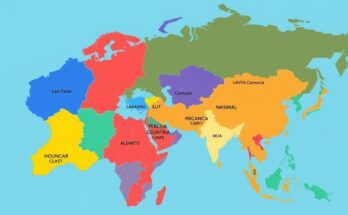This week, Bhutan’s King Jigme Khesar Namgyel Wangchuck is visiting India, participating in events like the Maha Kumbh in Prayagraj and the Bengal Global Business Summit. His trip aims to strengthen Bhutan’s economic ties with India, a necessary endeavor as the nation grapples with challenges, particularly youth emigration seeking opportunities abroad.
However, amid these diplomatic engagements, there are 32 political prisoners in Bhutan—mostly Nepali-speaking Bhutanese—who deserve attention and compassion. The Indian government is in a prime position to advocate for their release, urging the King to right past wrongs while he forges future connections.
Bhutan aspires to greatness, planning projects like a new “mindfulness city” and improving transport links with India. Yet, the ongoing incarceration of political prisoners casts a shadow on this forward-looking vision, reminding the world of the unresolved injustices from decades gone by.
The plight of these prisoners, some locked away since before the King assumed the throne in 2008, highlights the gap between Bhutan’s democratic aspirations and its past actions. Despite reforms, these individuals continue to endure harsh conditions, with many facing lifelong imprisonment without chance of parole, their freedom resting solely in the hands of the King.
Human Rights Watch has identified 32 men labeled as “political prisoners,” who have suffered complaints of torture and unjust trials, often without legal representation. Ram Bahadur Rai’s story exemplifies the tragic tales of those unjustly detained, captured under fabricated charges, and tortured in their quest for rights.
Having endured decades behind bars, survivors like Rai share harrowing accounts of mistreatment, from inadequate rations to basic necessities being denied. Their suffering is compounded by the isolation from loved ones, as Rai himself felt when he sent a photo of himself to his children for the first time in over a decade.
With an image of progress and compassion, Bhutan’s legal framework assures protections against human rights violations, yet the reality for these prisoners starkly contrasts with such ideals. While King Jigme Khesar engages with Indian leaders, he should feel the weight of this responsibility and take action to release those wrongfully imprisoned.
In a decisive moment of leadership, the King could exercise his extraordinary powers and grant amnesty, bringing justice to those who have waited far too long. The release of Bhutan’s political prisoners would not only end their suffering but also heal the national narrative, allowing Bhutan to step into a new era free of the burdens of its past.
During his visit to India, Bhutan’s King Jigme Khesar Namgyel Wangchuck confronts pressing issues at home, including the unjust imprisonment of 32 political prisoners. While Bhutan seeks to modernize and thrive economically, these prisoners remain a haunting reminder of bygone state violence and the need for reform. Urging the King to release them could signify a major step in reflecting brotherhood and compassion in Bhutan’s progressive image.
As King Jigme Khesar Namgyel Wangchuck visits India, it is crucial that he is encouraged to address the plight of the 32 political prisoners in Bhutan. Their release would symbolize compassion and justice, essential counterpoints to the enlightened image Bhutan strives to project. It is a pivotal opportunity for the King to reaffirm his commitment to human rights and national reconciliation by amending past injustices for a hopeful future.
Original Source: www.hrw.org



